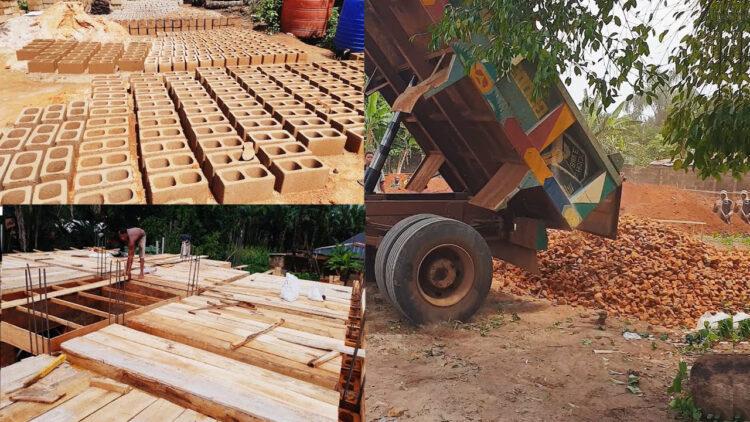In Nigeria, the construction industry is facing a significant challenge as the prices of essential building materials such as cement, steel, and sand continue to rise.
This trend is having a detrimental effect on construction projects across the country, making it increasingly difficult for developers, contractors, and homeowners to proceed with their plans.
Several factors have contributed to the escalating cost of building materials. One of the primary reasons is the high demand for housing and infrastructure development, driven by population growth and urbanization. This surge in demand has put pressure on the limited supply of building materials, leading to price hikes.

Another contributing factor is the reliance on imported materials. Nigeria heavily depends on imports for materials like roofing sheets, steel, iron, and sanitary ware. Fluctuations in international markets and exchange rate variations have made these materials more expensive, further driving up construction costs.
In addition to these factors, challenges such as inadequate infrastructure, high energy costs, bureaucratic bottlenecks, and inconsistent government policies have all played a role in the rising cost of building materials.
These issues have hindered the establishment of efficient supply chains, increased production costs, and ultimately passed the burden on to consumers.
The impact of these rising costs is significant. Small and medium-sized contractors and developers are particularly affected, as they struggle to absorb the increasing costs or pass them on to consumers.
This has led to project delays and cancellations, hindering job creation and economic growth in the sector.
The affordability of housing has also been compromised, making it challenging for low and middle-income families to access decent shelter.
This has widened the housing deficit in Nigeria, exacerbating social inequalities and hindering sustainable urban development.
READ ALSO: UK Spending Watchdog Warns On Govt Migrant Housing Costs
To address these challenges, a multi-faceted approach is needed. This includes encouraging local production of building materials, improving infrastructure, streamlining regulatory processes, and providing incentives for innovation and technology adoption. Collaboration between the public and private sectors, as well as engagement with international partners, is also crucial to finding sustainable solutions.
Overall, addressing the rising cost of building materials in Nigeria is essential for the construction industry and the economy as a whole.
By implementing strategic interventions and fostering a conducive environment for investment and growth, Nigeria can overcome these challenges and unlock the potential of its construction industry for sustainable development and economic prosperity.


